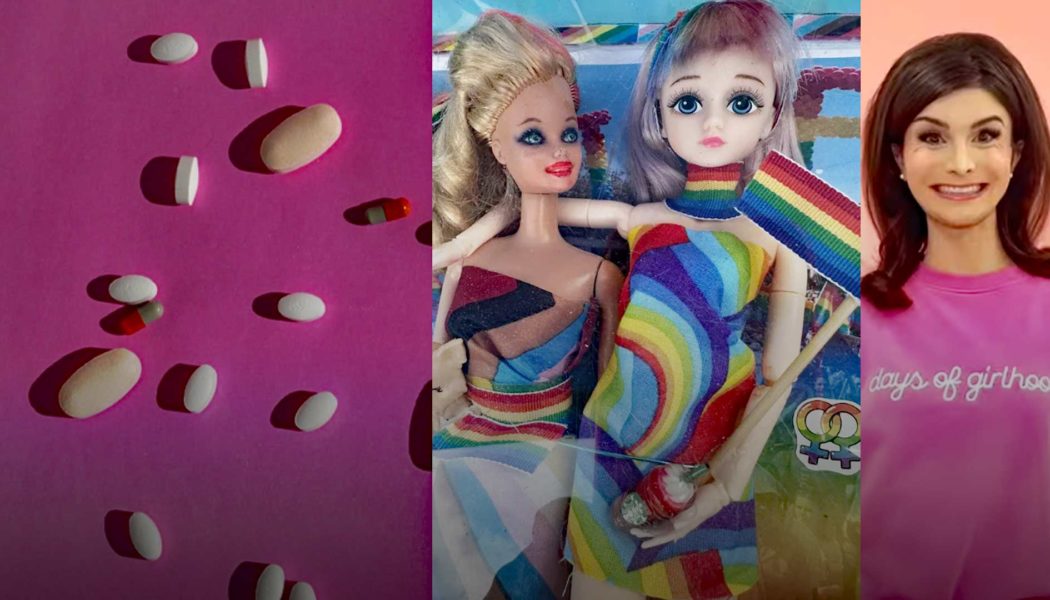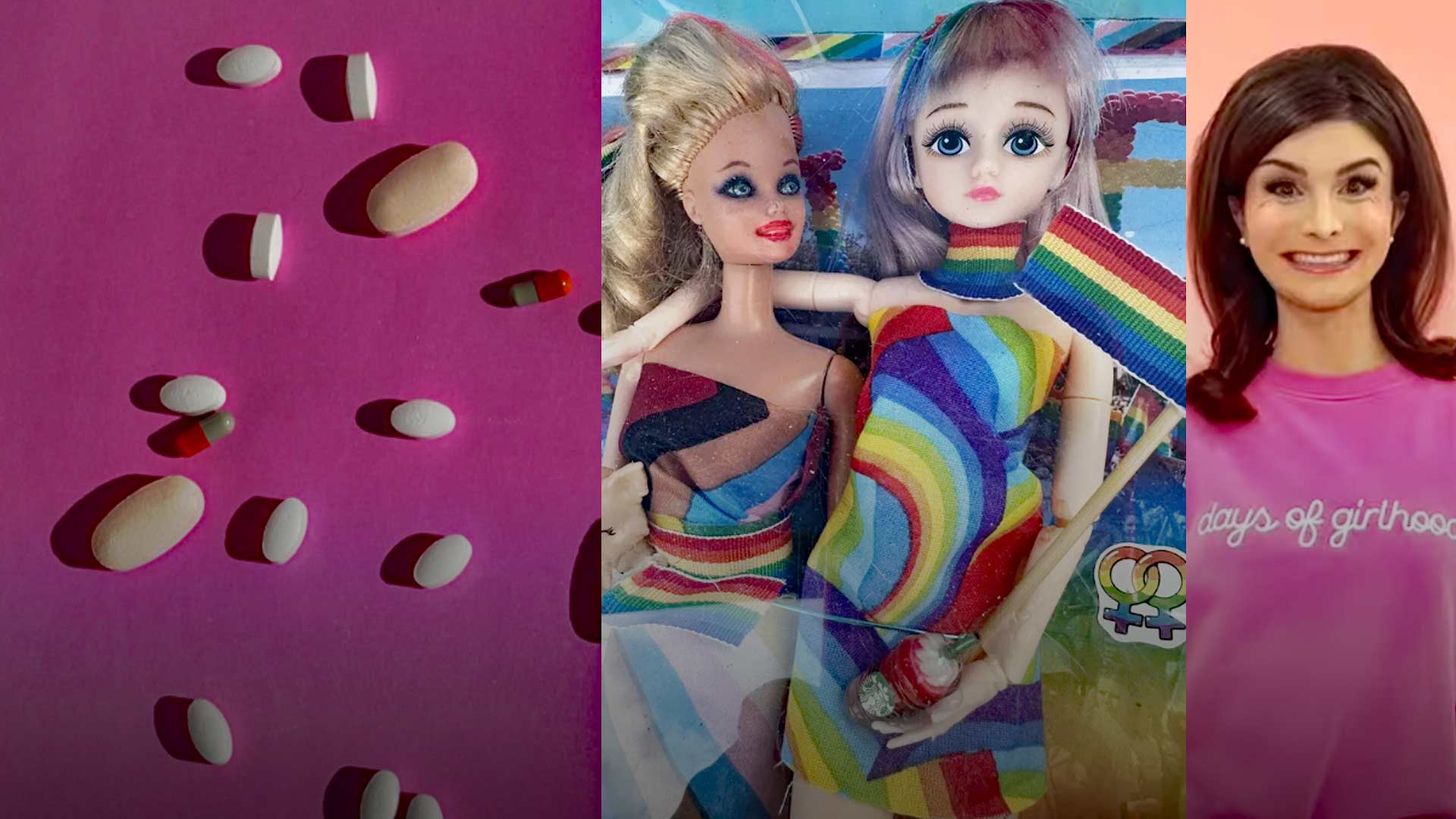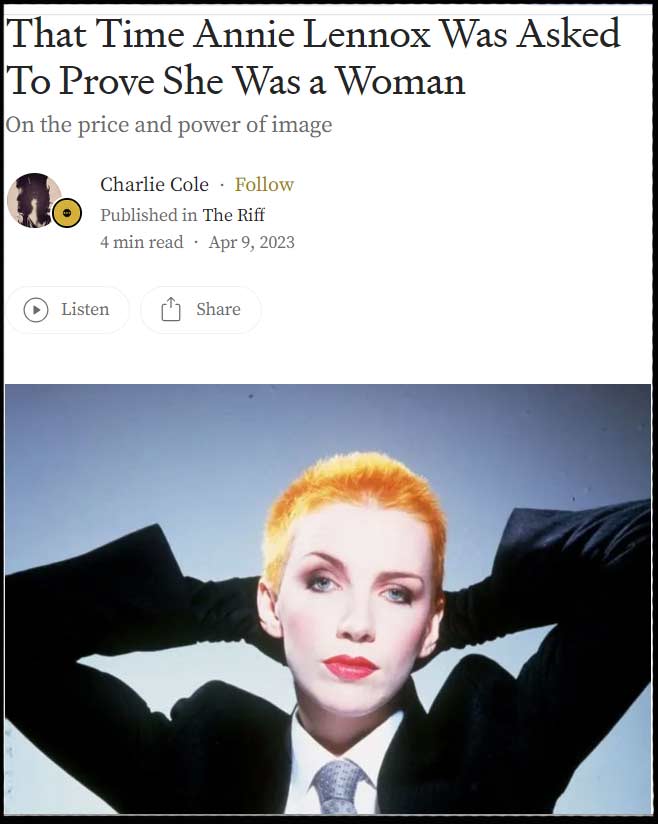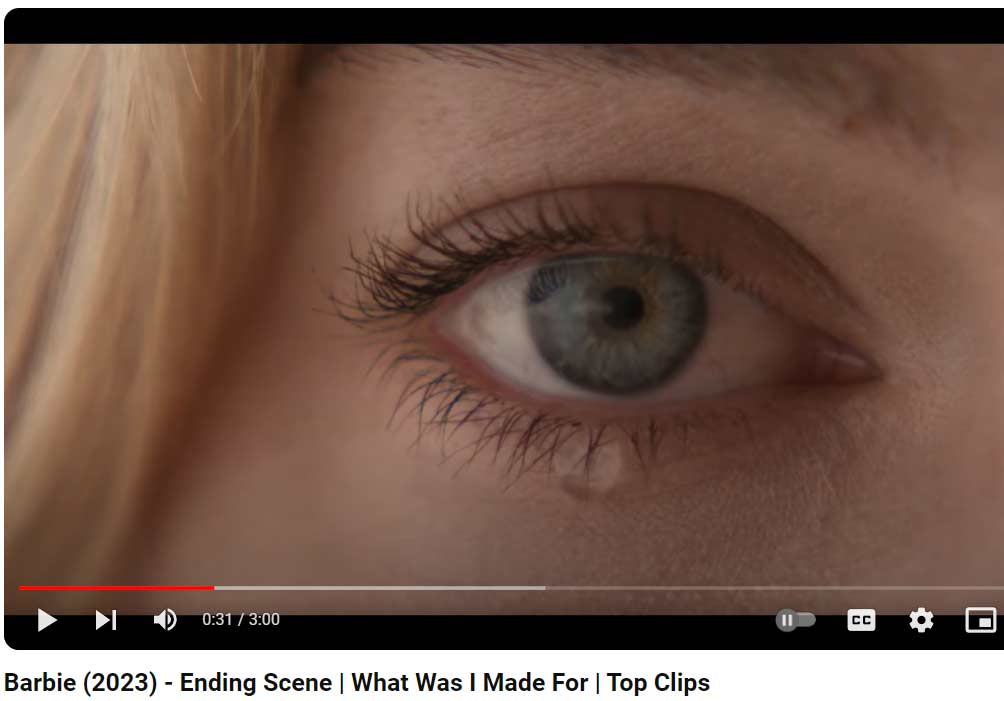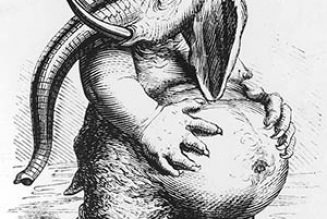The artificially hollowed-out reproductive organs of the hyper sexed 1990’s are completed, even perfected, in the neutered version of womanhood presented today.
Young women in the generations which followed were offered a narrative surrounding sexuality which heralded freedom from service to their families – enabling promiscuity and empty encounters to become an idol which found little pushback from the secular structure. While charismatic androgyny remained elevated in art and fashion (from Marlene Dietrich to Annie Lennox), the more visible template of womanhood was equally free from maternal nuance.
Pamela Anderson’s playmate status was the ideal, progressing to a sculpted and bronzed Baywatch icon. As recently as 2018, Anderson nailed third-wave feminism with a yawn: “a bore … which paralyzes men. I’ll probably be killed for saying so, but my mother taught me, ‘don’t go to a hotel with a stranger.’” Indeed, wokeism prevailed, and Ms. Anderson was immediately qualifying and retracting her remarks.
Terms such as “non-binary” and “gender expansive” promote a reductionist approach to humanity begun in the 1940s and ‘50s with Alfred Kinsey’s perverse work. We were given warnings regarding artificial contraception within marriage from Pope Paul VI in his prophetic 1968 encyclical Humanae Vitae, or “Of Human Life.” Addressing clergy, scientists, and civil governments, the document moves on to families. Regarding natural law between married couples: Not much experience is needed to be fully aware of human weakness and to understand that human beings — and especially the young, who are so exposed to temptation – need incentives to keep the moral law. It is an evil thing to make it easy for them to break that law.
Another effect that gives cause for alarm is that a man who grows accustomed to the use of contraceptive methods is tempted to forget the reverence due to a woman. In disregarding her physical and emotional equilibrium, he can easily reduce her to a mere instrument for the satisfaction of his own desires, no longer considering her as his partner whom he should surround with care and affection. She can become a one-dimensional tool for the sexual act.
In the closing scene of Greta Gerwig’s Barbie, we’re met with the symbolic conclusion of her odyssey: Barbie is visiting the gynecologist. To become authentically woman, she must now wrestle with her fecundity. The gestalt female icon herself – whether astronaut Barbie, waitress Barbie, veterinarian Barbie, ad infinitum – has yet to confront her potential beyond parties and professional credentials. This unmet vulnerability is offered as a bit of a punchline, yet screams of the scarcity we were fed.
On the subject of this talented director, her 2019 Little Women is, unironically, a much more beautiful, stirring, and deep portrayal of womanhood.
Jason Evert, Catholic apologist and longtime chastity educator, describes the progression of many young girls who declare themselves outside the traditional structure of gender and therefore “trans.” He has spoken to hundreds of teenagers in person, who often line up for hours after his presentations to confide their muddled path to social and medical transition. These girls report viewing pornography as their introduction to the sexual act. Their psyches are formed with the expectation that their intimate lives will be violent, debasing, and public. To declare themselves male is a safe space from such encroachment. Who can blame them?
Conversely, it is almost a given that any young woman is “on the pill.” The standard for American women has slowly become corporate, sterile, and complacent. New age feminism is a prison of a new kind, “liberating” women from the natural consequences of feminine receptivity to new life. “You can be anything!” they promise, but neglect to mention that it requires abandonment of feminine balance, health, and motherhood.
Apart from the theological and philosophical arguments against the hormonal birth control pill, we cannot ignore the blaring truth that ‘the pill’ is not good for women. The National Institute of Health published an article in January of 2023 stating that among patients with a history of mental illness who used hormonal birth control, 38.8% of them reported worsened symptoms. Additionally, 83% percent of women reported that their doctor never mentioned the possibility of worsened mental health or mood swings during contraceptive counseling.
Mutilation of the feminine reproductive organs, whether for the purpose of sterilization or sexual transitioning, yields the same results: a hollowed-out shell where womanhood once resided.
ALASKA WATCHMAN DIRECT TO YOUR INBOX
In the case of both sex and identity, removing the Divine has drastic consequences. If sex is nothing more than momentary pleasure, why not erase the parts of oneself that seem to get in the way of that end goal?
If a woman is nothing more than a shiny societal status, why wouldn’t the forward-thinking American woman protect herself from the possibility of burdensome children? If there is nothing immaterial, Divine, or awe-worthy about the human design, it stands to reason.
If womanhood is freedom from the natural consequences of sexuality, then the sterilized man and the sterile woman are one in the same. They both wear the shiny costume of womanhood, free from nature, order, and consequence.
If we accept hormonal contraceptives, we must embrace the transexual man. We cannot claim that only a certain degree of disrespect for nature is philosophically sound and progressive.
When a society begins interfering with nature, on a deep, hormonal, medical, and widespread level, we must question the purpose. To what end do we run from our natural design? Why is it commonplace for young women to have Botox, lip filler, brow lifts, jaw fillers, breast implants, and rib removal surgeries? What ideal do they seek to achieve? Is she the neutered Barbie doll? Promised an identity free from subservience, gentility, and the male gaze, she has objectified herself.
“It is sad, suicidal, course our species to have taken”-John Steinbeck, East of Eden.
The views expressed here are those of the author.
Click here to support the Alaska Watchman.
